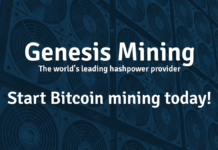On August 24, 2017, artificial intelligence (AI) and blockchain startup doc.ai Incorporated released details of its language processing platform that timestamps datasets using an Ethereum blockchain-based system and AI tools.
The project is the result of collaboration between developers from Stanford and Cambridge Universities. According to the announcement, doc.ai can improve patient care by “creating the most advanced natural language dialog system that generates insights from combined medical data.” The platform is built on the Ethereum blockchain, allowing for decentralized timestamping of datasets, and makes use of AI that is capable of deep learning on the edge of networks (a term for data processing near the data source on the network, thus reducing communication bandwidth between sensors and the datacenter) or on a mobile device. The AI can provide a 24-hour resource to patients by answering their questions specific to their personal health data and their physician’s analysis. In addition, the AI uses the cumulative information gathered to learn about the patient’s needs and to customize itself accordingly.
doc.ai plans to introduce, over the next year, three natural language processing models called Robo-Genomics, Robo-Hematology, and Robo-Anatomics, which will be made available to the medical industry. As described on doc.ai’s website, Robo-Genomics will provide users with decision support. Robo-Hematology is designed to answer any question on 400+ blood biomarkers. Robo-Anatomics uses a patent-pending “Selfie2BMI” module that uses a Deep Neural Network to predict a number of anatomic features from a photo of a face.
Walter De Brouwer, founder and chief executive officer of doc.ai, commented on the attributes of the platform:
“We are making it possible for lab tests to converse directly with patients by leveraging advanced artificial intelligence, medical data forensics, and the decentralized blockchain. We envision extensive possibilities for the use of this technology by doctors, patients, and medical institutions.”
De Brouwer explained to ETHNews doc.ai’s motivation for using blockchain technology:
- We believe that in the age of an empowered consumer/patient, AI and its products, intelligence and prediction, need to be decentralized for all of us to own.
- We are decentralizing first the data, then the classification and extraction, so that local prediction happens on the edge of the network, on the end-device (smartphone).
- Decentralization of course makes it more secure, as there is no single point of failure.
- Empowering people with their medical data also means that they will be able to fully own it, not just use it. They will be able to do with it whatever they want: donate, keep private, broadcast, sell or barter. Smart contract will help to regulate access to data: for example, multi-signature smart contract will offer various degrees of access to various data for different people. For example, you can encode which data is accessible to your doctor vs data accessible to your family.
- Any data that is put into the system will be timestamped and embedded with coordinates because of the blockchain, so we can sort out which datasets are the most valuable and which are not. Zip-code level data, for example, can provide a wealth of insights – http://library.csun.edu/guides/GovPubs-ZipCode/Health
- Tokenization allows to grow strong, open source community. It also allows to train the machine to be smarter and more precise (more data, better AI insights). People will be able to submit their data and conduct their private researches by sponsoring them via buying tokens. Parents of autistic children, or children suffering from epilepsy, for example, will now be able to input their data into the AI and benefit from the powerful silicon brain.
- As the open source community it will eventually be opened for more applications and more developers
In an announcement on July 24, 2017, Deloitte Life Sciences and Healthcare and doc.ai will be working together to test the use of Robo-Hematology. Deloitte’s Rajeev Ronanki commented that “Platforms like these open new possibilities for patients and medical organizations by providing more personalized, intelligent healthcare. We are excited to collaborate with doc.ai and to be at the forefront of this technology.”
The transition to AI and the Ethereum blockchain as a backbone for patient care is a significant step forward for the nascent technologies. “We are very excited to bring these three worlds together in one: AI, blockchain and healthcare,” said De Brouwer.
Our Social Networks: Facebook Instagram Pinterest Reddit Telegram Twitter Youtube






